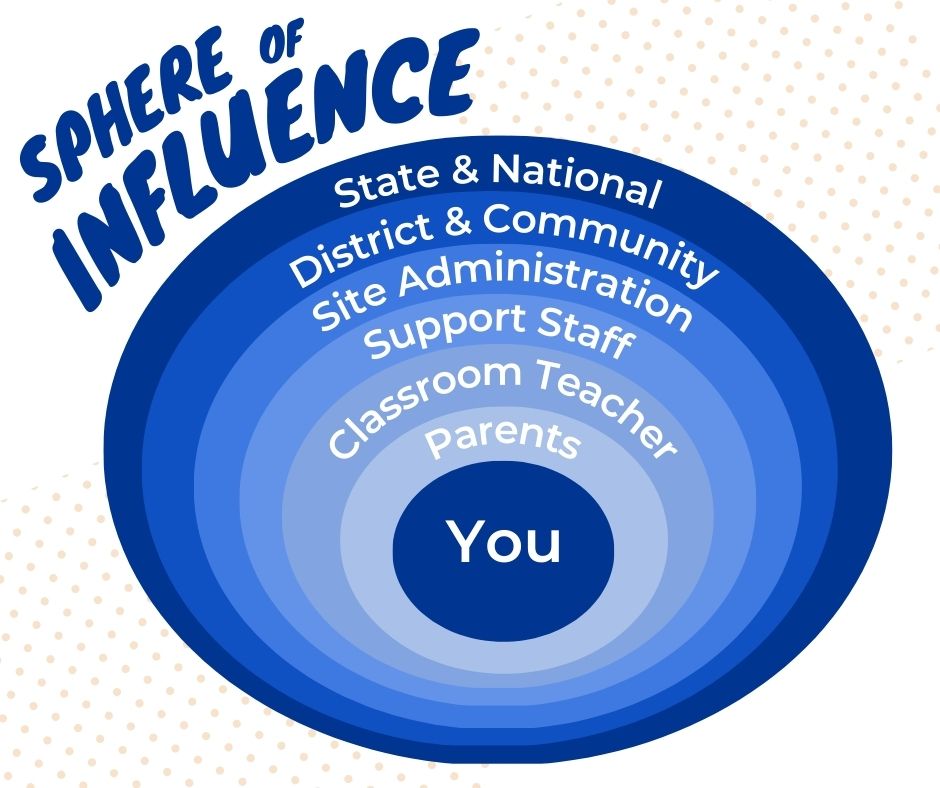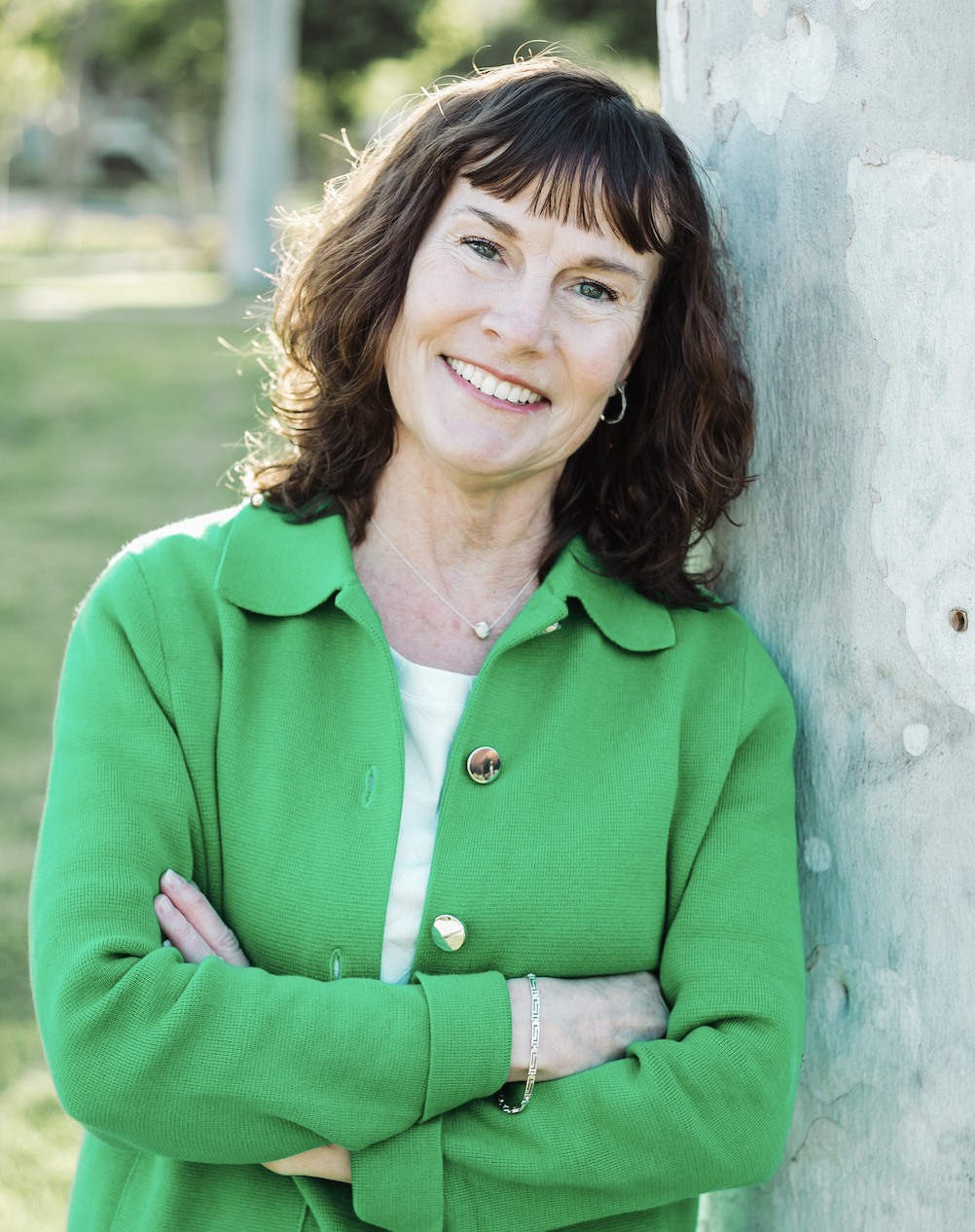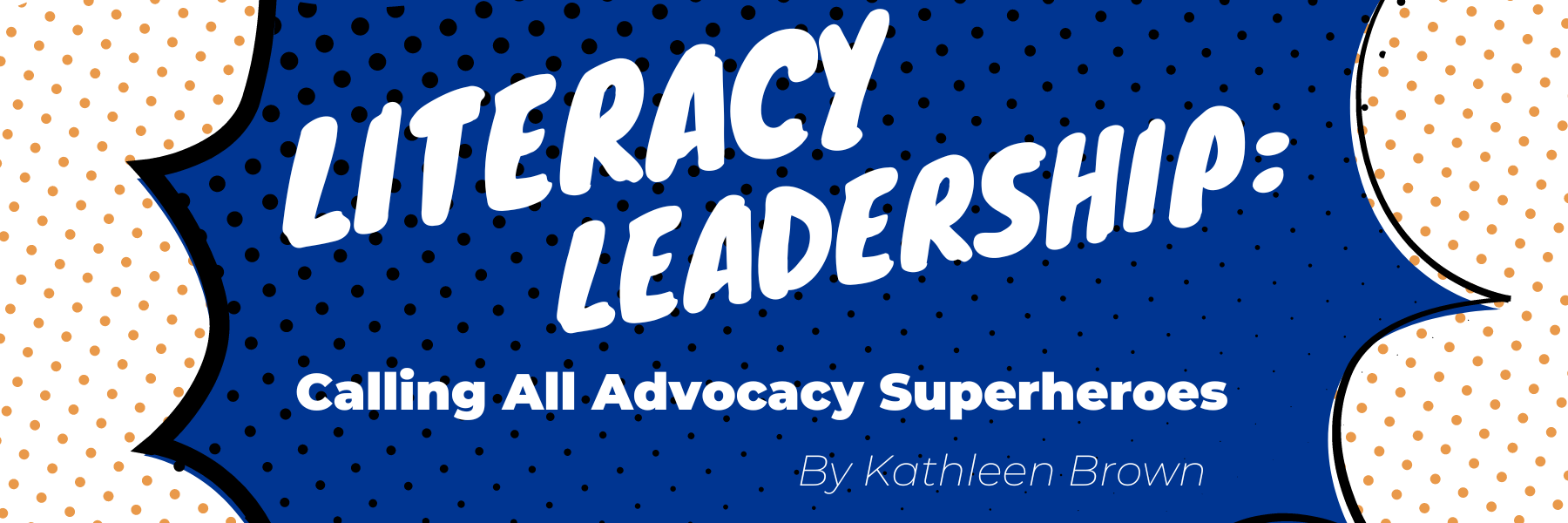BLOG
Literacy Leadership: Calling All Advocacy Superheroes

By Kathleen A. Brown
Leadership and advocacy go hand in hand, just like reading and writing. Often educators, who are not administrators, do not see themselves as leaders. However, we are all leaders with different talents, gifts, strengths, and styles. Growing into a leader takes time and training, but it is well worth the effort when it pertains to educating our youth.
Leadership and the 4 Cs
What is leadership?
“Leadership is a process of social influence, which maximizes the efforts of others towards the achievement of a goal.” Forbes, April 9, 2013
Communication
We live in a world where communication is easier than ever. We have multiple ways to reach individuals and larger audiences. Ongoing and regular communication is the most effective way to get your message out and heard. Newsletters, websites, and social media platforms are productive ways to share your message and inform stakeholders. Lean on your professional networks for support and to share common ideas and resources.
Collaboration
The work of educating our youth is complex, and we can’t do it alone. We must intentionally build collaboration and establish trust; all voices need to be respected. You can ensure that all voices are heard by establishing a literacy and learning team, including classroom teachers, literacy specialists, special education teachers, parents, counselors, assistant principals, principals, and central office staff to examine positive trends and concerns and plan for continuous improvement. This collaboration enables individuals to work together to achieve a common goal, e.g., to ensure equity and access for all students.
Coordination
Communicating and collaborating with other stakeholders takes coordination. From email, phone calls, personal notes, weekly or monthly bulletins, websites, data reports, and classroom or school-wide observations to monthly meetings, there are many ways to help.
Without coordination of school-wide goals or instructional practices and assessments, the work will be splintered. Student services must be timely, effective, meaningful, relevant, and, most importantly, helpful to their growth as learners. The student study team is a prime example of when site administrators, the classroom teacher, the literacy specialist, special education teachers, and parents join to discuss a student’s strengths and areas of need to collectively create the next steps in the student’s learning journey.
Coordination facilitates impactful and harmonious group efforts towards a shared set of goals.
Courage
It takes courage to speak up and make your voice heard.
You cannot go wrong if you keep children in mind and at the center of your work. Consider the consequences to students’ learning and well-being if you remain silent and accept ineffective and non-research-based instructional practices.
Start small as you gain confidence, such as connecting with a like-minded colleague to advocate for school change or educational reform.
Advocacy Begins with You
“Advocacy is defined as any action that speaks in favor of, recommends, or argues for a cause; or supports defends, or pleads on behalf of others.” Missouri Foundation of Health, 2016ˆ
Relationships
Establishing healthy, collaborative, and respectful relationships is critical to advocacy and leadership. Your cause will stagnate without positive relationships. It takes time to build trust, so be patient with the process.
Start with small steps, like being an intentional listener and team player. Build your human capital by revealing your vulnerability through honesty and transparency.
Invitations
Invitations open the door to communication and collaboration. Who does not like to be included, especially when it involves continuous improvement or refinement of students’ learning? Phone calls and personal notes are effective and impactful ways to reach stakeholders. Establish an open-door policy as you welcome others into your work, cause, and passion.
Community
We all crave and need a community to thrive in the world of education! Community unites us and strengthens our collective good. Utilizing an established network of like-minded educators is essential and invaluable. Together, we are better and can achieve measures beyond our expectations. To begin, brainstorm where and how you can serve to improve teaching and learning for all students; we all have a part to play with our unique gifts. For instance, you could organize a community literacy event providing the best services and opportunities for students to grow and thrive.

Sphere of Influence
“Influence is to move or impel (a person) to some action.” Dictionary.com
Who do you feel comfortable with and include in your sphere of influence? How can you expand your sphere of influence to have an impact? Start by strengthening your inner circle, then branch out and explore other possibilities. Establish a wide base of support carrying your message or cause forward.
As educators, it is our moral imperative to help ensure that ALL students receive high-quality classroom instruction and research-based interventions.
Share your thoughts and plan of action with a trusted colleague who will encourage you to implement your ideas and keep you accountable.
This is not easy work, but doable work, especially when you partner with like-minded colleagues who share the same passion.
I challenge you to step outside of your comfort zone and advocate for the rights of ALL students who deserve the opportunity to become literate and have hope for their future. Please feel free to reach out to me to share your success stories by using the Reading Recovery Community Forum.
Act Now to get involved and promote literacy from the top down. Contact your local politicians and political groups to let them know what is important to you.
 Kathleen A. Brown has worked for 37 years as a classroom teacher, literacy specialist, staff developer, and Reading Recovery teacher. She has served as the Reading Recovery teacher leader in a large urban district in California for the last 22 years. Kathleen has provided early literacy training and coaching for the district and has presented at local, state, and national conferences.
Kathleen A. Brown has worked for 37 years as a classroom teacher, literacy specialist, staff developer, and Reading Recovery teacher. She has served as the Reading Recovery teacher leader in a large urban district in California for the last 22 years. Kathleen has provided early literacy training and coaching for the district and has presented at local, state, and national conferences.
THE JOURNAL OF READING RECOVERY
Spring 2024
Constructing a More Complex Neural Network for Working on Written Language That Learns to Extend Itself by Carol A. Lyons
Reading Recovery IS the Science(s) of Reading and the Art of Teaching by Debra Semm Rich
Predictions of Progress: Charting, Adjusting, and Shaping Individual Lessons by Janice Van Dyke and Melissa Wilde
Teachers Designing for Context: Using Integrity Principles to Design Early Literacy Support in Aotearoa New Zealand by Rebecca Jesson, Judy Aitken, and Yu Liu




